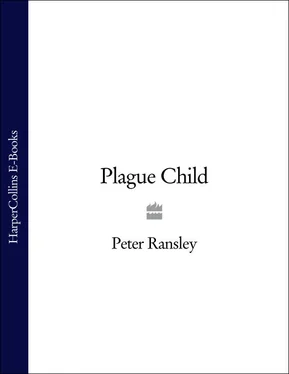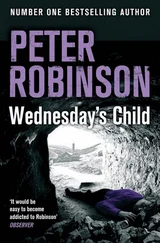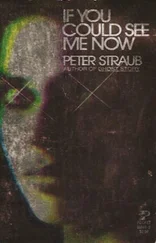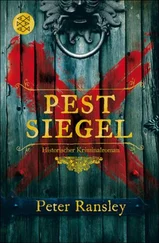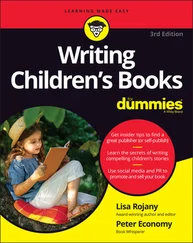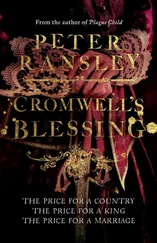Put there to destroy the plague, lime ate quickly into bodies and faces, dissolving them in a few days into an unrecognisable slime. No one would go near the pit, let alone lift a body from it. Someone wanted to prevent anyone from recognising, or claiming he recognised, the features of the child at the bottom of his cart.
Matthew shrugged. His hand closed round the pendant, feeling the outline of the jewelled bird and the links of the chain, one by one. Then his hand stopped stroking it. Suppose he was accused of stealing it? It was risky, far too risky to return it. The horses, which were dragging the cart more and more slowly, needed shoeing and the blacksmith would melt the gold down. Broken up, the stones he could sell one by one at Witney Fair, or Oxford, with the linen apron, which Susannah would wash and press.
He was musing like this, the rocking of the cart sending him into a half-sleep, the reins slipping gradually from his fingers, when he first heard the stuttering cry.
He had been asleep. Dreaming. There was nothing but the wind, the weary stumble of the hooves and the creak of the cart. But there it was again. Unmistakable. A baby’s cry.
Hadn’t he feared, from the very beginning, that this was wrong? Hadn’t Susannah warned him, time and again, of the evil of throwing someone who had not died of plague into the pit? The baby had been clap-cold dead – now it had come back to haunt him.
As the cry increased into a pitiful wail, he crossed himself in terror, lashing the horses in an attempt to escape from the spirit that he believed was pursuing him, he was now convinced, into hell. It was the hell he had somehow escaped as a child, but knew he had always been destined for; a pit, not of fire, but of bodies slowly eaten, burned, then re-formed, only to be eaten and burned again, forever being consumed, writhing in lime.
Part One At the Half-Moon
November 1641–September 1642
Chapter 1
That was the story which I eventually got out of the man I believed to be my father, Matthew Neave. There were various versions, each more colourful than the last and, of course, there was what happened next, but that has to come in its proper place.
We lived in Poplar, which some people said was a land of heathens and barbarians, because we were outside the walls of the great City of London and were not freemen. I could not understand that because in Poplar Without, as it was sniffily called, we had much more freedom. There were few laws, and I never saw a constable. I loved it there. Named after the tall, shapely trees that lined the High Street and the marsh, it was still half farming land, breeding cattle that lost little fat on the short drover’s road to Smithfield. But the farmers were being pushed back by the huddling mass of small houses being knocked up every day.
These houses were unlike the tall buildings of the City, which struck awe in me when I first saw them. Rackety, timber-framed houses with narrow, gabled fronts, they were home to some of the first Huguenot refugees who had fled from France and taught me to call my hat a shappo and swear about the Pope in French. But the houses were mainly run up for shipyard workers like Matthew.
Visitors from the City called the shipwrights a canting crew because, they said, they were rogue builders, outside the Company of Shipwrights and the law of the City. But to me they were magicians who carried great ships in their heads. In the yard at Blackwell I watched these visions become hulls, then skeletons, growing prows and masts, as I ran for buckets of pitch or an adze for Matthew in his sawpit.
When snow covered the Isle of Dogs and ice gradually thickened over the Thames it was always warm here. With bare feet and wearing nothing but breeches I filled and carried baskets of wood and coal for fires to melt the pitch, mould the iron and make the steam that would bend the wood, miraculously to me, into the shape of the shipwrights’ drawings.
With fires going on through the night when a ship had to be finished, no wonder it looked like hell on earth to the wealthy City people who commissioned the ships. And smelt like it. When an east wind blew, smoke from the lime pits of Limehouse combined with that given off by the coal to make a choking, noxious brew.
We lived in hovels and many were miserable, but I was happy. Unlike my fellows, I was not beaten. Matthew beat Susannah sometimes, particularly when his wages were paid and he had been to the Black Boy or the Green Dragon; but he never beat me. He would shout at me and curse me, and his hand would go to his belt or pick up a piece of wood, but at the last moment he would stop himself, give me a strange look and walk away muttering.
Once I asked him why he never beat me.
He laughed as if he was never going to stop. ‘Dost thou want to be beaten?’
‘No, no, Father, but everyone else is.’
He hit me on the head, knocking my hat off, but it had no more force than the slaps Susannah gave me.
‘There,’ he said. ‘Dost like it?’
‘No,’ I said, ‘but that was no beating.’
He stopped laughing. ‘Thou art a curious child,’ he said.
I did not think I was curious, but curious things happened to me. Most of the children I knew had only a vague idea when they were born, or how old they were. There were too many of them. But I knew I was born in the year King Charles was crowned, towards the end of September. I say towards the end, because the day seemed to vary. It was always when the weather grew chill, the mist clung to the marsh and the dry seed pods of bog plants rattled in the wind. I would be up at first light, my lids gummed to my eyes, taking the snap of bread and cheese from Susannah when she would say: ‘The will o’ the wisps have been, Tom.’
My eyelids would fly open, I would drop my snap and rush to the front doorstep. There was a cake with icing on which TOM was written, in bold letters of yellow marchpane. It was the most delicious cake – I have to say the only cake – we ever ate. The inside was bright yellow, and full of fruit. We had no oven and the baker in the High Street sold only bread and pies. I searched on the marsh, but never could find the will o’ the wisps’ oven. Matthew warned me never to catch them, or even see them, or they would bake me as well, and TOM would be inside as well as outside the cake.
But I was determined to catch them and, one foggy September, real will o’ the wisp weather, I begged Susannah to wake me. I must have been five or six and all that week I rose shivering and stared bleary-eyed through the holes in the oiled paper of the window.
On the fifth morning I dozed off, waking with a start. I leaned out of the window. The cake was there – I had missed them! The street was empty, except for a woman in a hooded, grey cloak and a peaked stove hat like a witch’s. She must have heard me, for she stopped and began to turn. At the last moment I ducked away trembling, afraid she was a will o’ the wisp in disguise, and would turn me into a cake. By the time I told myself this was stupid (I was always having such conversations with myself, as lonely children will) and looked again, she was disappearing into the swirling mist.
One Easter Sunday after the service I saw the cake in the church hall. It looked exactly the same, the marchpane glittering, but they had made a mistake with the name. Instead of my name it said GLORIA. I picked up a knife by it. Whether I was going to put my name on it, or cut a slice, I cannot remember, but the knife was twisted from my hand by the minister, Mr Ingram, who proceeded to thrash me. Susannah heard the noise and pleaded for me.
‘This is Tom.’
‘Ah. Tom. Yes. I remember.’
What he remembered I was not to learn for a long time but, again, I got that curious look. Through my tears I tried to tell him it was my cake, not Gloria’s. He was startled I could read, and it happened like this:
Читать дальше
